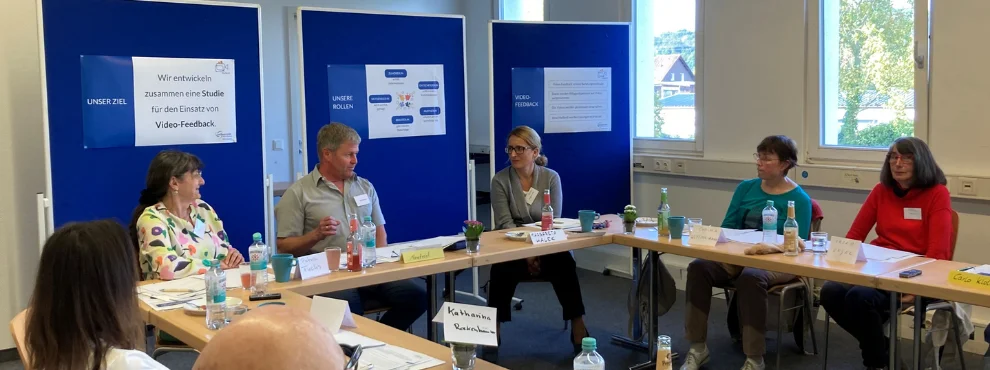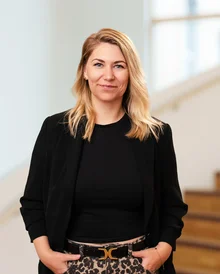Innovative research approach at Witten/Herdecke University: those affected help shape research
For fifteen months, the project investigated how everyday care for people with dementia and their relatives could be improved.

Around 1.8 million people in Germany live with dementia. Two thirds of them are cared for at home by relatives. Everyday life poses major challenges for everyone involved: Communication problems, misunderstandings and conflicts can put a strain on living together. This is precisely where the project "Participatory focus group-based development of an individualised video feedback intervention programme for people with dementia living at home and their carers" (ParDeVI), led by Prof. Dr Margareta Halek, Chair of Nursing Science at Witten/Herdecke University (UW/H), came in. For fifteen months, researchers at UW/H worked on this project together with those affected and have now completed it.
Video feedback helps to reflect on everyday care routines
Among other things, the project identified relevant everyday situations for the target group in which video feedback could provide helpful support - for example when eating, organising the day or talking to doctors and people in public spaces.
"The participants emphasised how valuable it would be to be able to look at difficult everyday situations together again via video, reflect on them and develop concrete solutions," explains Prof. Dr Margareta Halek.
Affected people as co-researchers - a unique approach
People with dementia and their relatives were not only involved as study participants, but also as co-researchers. They contributed their own experiences, accompanied the research process in an advisory capacity, helped to interpret the results and presented the project together with the researchers at national and international specialist conferences.
This intensive and innovative participation was well received: "Many of those involved have expressed the wish to continue to be actively involved in future studies - not only as participants, but also in the design of the study or in the communication of results," says Margareta Halek.
Next steps already being planned
Following the successful completion of the study, the results will now be published in scientific journals as well as practice-relevant journals such as "Häusliche Pflege" and "demenz.das Magazin" - jointly authored by researchers and co-researchers. ParDeVI will also be presented at the 35th Alzheimer Europe Conference in Bologna in October 2025.
The next phase of the project is also already in preparation: the UW/H researchers will submit a funding application for a larger efficacy study together with those affected. The aim is to investigate whether the video feedback programme developed is really suitable for making home care situations easier for everyone involved.
The project was funded by the Federal Ministry of Education and Research.
Photos for download
Contact person

Svenja Malessa
Press Officer
Administration | Communication & Marketing
Alfred-Herrhausen-Straße 48
58455 Witten
Room number: 2.F05
